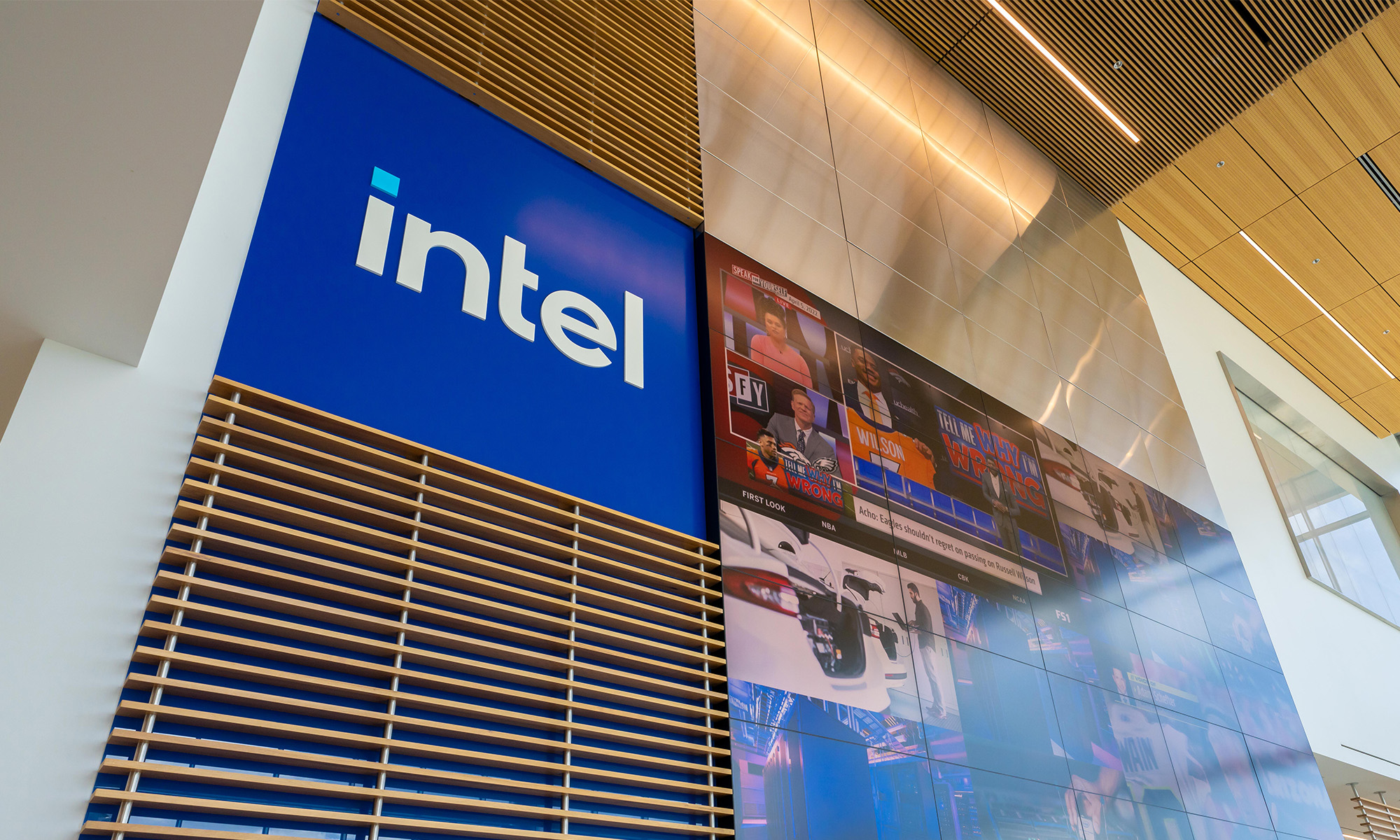
Image credit: Apple.
In September, Apple (AAPL 1.04%) is expected to unveil its next generation iPhone, presumably called the iPhone 7. The device is going to be a particularly important one for the company as it looks to recover from the slump in sales that it suffered from throughout the iPhone 6s cycle.
Although it's far too early to tell how well the device will do in the market, particularly as the weak reception to the iPhone 6s series seemingly came as a surprise to everyone (including Apple itself), there are a number of Apple suppliers that should benefit from the launch. Here are three.
1. Intel
Chip giant Intel (INTC 2.81%) has been harshly criticized for largely missing out on the smartphone revolution. The company has tried for years to build products suitable for smartphones, but aside from a few token design wins, it has been unsuccessful.
However, there are several reports that Intel will win the modem/baseband spot inside some percentage of the next generation iPhones that ship. If the reports are true, then whether Apple sees iPhone unit growth or not over the coming product cycle, Intel should benefit by virtue of simply shipping modems to Apple during this iPhone cycle when it hadn't in many previous cycles.
Looking longer-term, if Intel can execute to a series of competitive modem products, it may be able to continue to win spots in future iPhones. This isn't likely to be a huge revenue/profit driver for the company, but as long as Intel can generate incremental profit from such deals, I don't think shareholders will complain.
2. Broadcom
Today's Broadcom (AVGO +2.53%) is a combination of a company that was formerly known as Broadcom (management refers to it as "Classic Broadcom") and Avago. Both Classic Broadcom and Avago were suppliers to Apple. Avago provided RF filters while Classic Broadcom provided a Wi-Fi chip as well as some other components.
On Broadcom's recent earnings call, management indicated that it expects to see a significant increase in both RF content in the next iPhone (which would benefit "Classic Avago") as well as a boost in Wi-Fi content (which benefits "Classic Broadcom").
This means that even if iPhone unit sales don't grow much (or at all), Broadcom could still register revenue growth related to the iPhone in the coming product cycle.
3. TSMC
For the A8 chip that powered the iPhone 6/6 Plus, as well as the A8X chip that powered the iPad Air 2, Apple moved away from longtime chip manufacturing partner Samsung (NASDAQOTH: SSNLF) and toward Taiwan-based contract chip manufacturer TSMC (TSM +0.22%).
For the A9 chip that powered the iPhone 6s/iPhone 6s Plus, Apple split the orders between TSMC and Samsung (and it is generally believed that TSMC got the minority allocation of the orders).
However, for the upcoming A10 chip, it is widely believed that Apple will move back to TSMC exclusively. Furthermore, it is expected that the A10 will use TSMC's new chip packaging technology known as InFO, which should give TSMC greater content share.
In this case, just as with Intel and Broadcom, TSMC should benefit from this coming iPhone cycle whether or not iPhone shipments ultimately grow or not.









